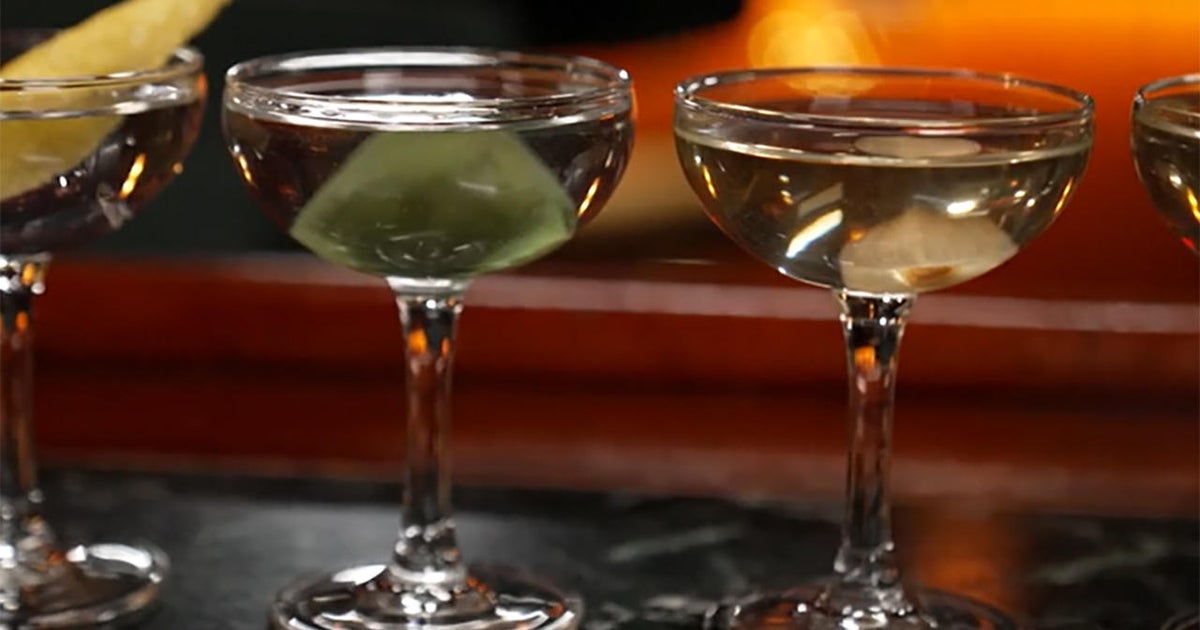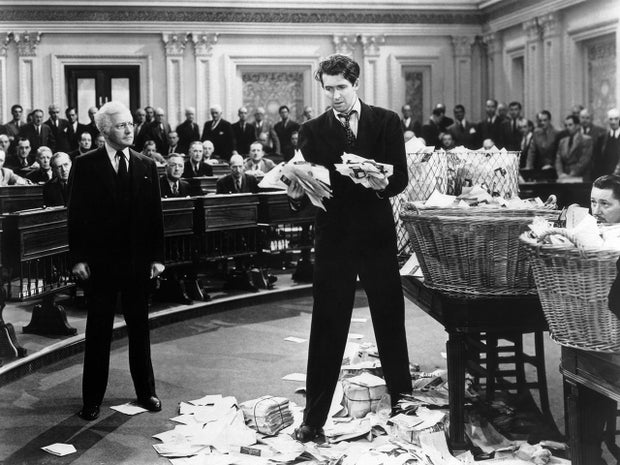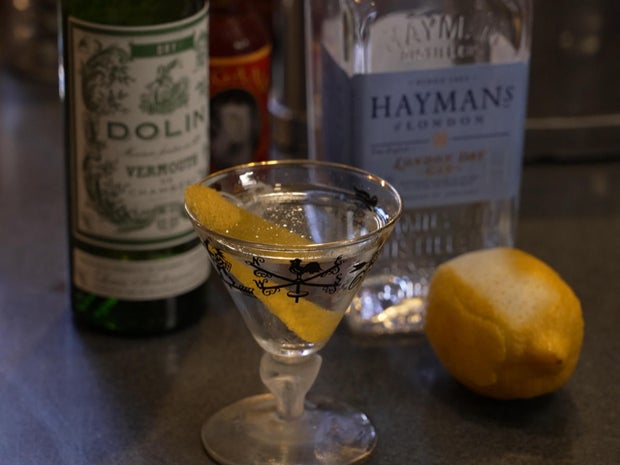CBS News
This week on “Sunday Morning” (September 8)

The Emmy Award-winning “CBS News Sunday Morning” is broadcast on CBS Sundays beginning at 9:00 a.m. ET. “Sunday Morning” also streams on the CBS News app beginning at 11:00 a.m. ET. (Download it here.)
On Sunday, September 8, “Sunday Morning” senior contributor Ted Koppel hosts “This Time Is Different,” a special edition of “Sunday Morning,” in which we examine a few of the factors likely to make this year’s election perhaps the most important of our lifetime.
COVER STORY: Serving up politics (and deep-fried pickles) at the Wisconsin State Fair
In a suburb of Milwaukee, visitors to the Wisconsin State Fair could partake of pig races and deep-fried foods on a stick – and also talk politics with “Sunday Morning” senior contributor Ted Koppel, who asked Wisconsinites why they were backing their chosen candidates in the presidential election.
For more info:
MUSIC: A political playlist: The fight over campaign songs
Music has helped set the stage for politicians for generations, and some songs have become intertwined with campaigns, from Lee Greenwood’s “God Bless the U.S.A.,” to Beyoncé’s “Freedom.” But sometimes artists don’t want their songs to be used by a particular candidate – and sometimes they sue! Correspondent Tracy Smith looks at when the playing of political anthems segues into copyright infringement.
For more info:
REALITY CHECK: What’s up with the economy?
The economy is the number one issue for voters going to the ballot box this November, and polls say most Americans, when asked about the economy, are pessimistic. But according to many economic indicators, the economy is actually doing quite well. So, why the disparity? Correspondent David Pogue talks with economics professor Justin Wolfers about what feeds people’s misperceptions of America’s post-pandemic economy.
For more info:
U.S.: Flag waving
Kelefa Sanneh reports.
For more info:
NEWS: How immigration laws are raising issues for Florida growers
In Florida, where nearly 27% of the labor force is foreign-born, state politicians are passing some of the harshest anti-illegal immigration laws in the country. Agriculture is big business in the Sunshine State, but with an estimated half of all farm workers in the country illegally, Florida’s new laws are having significant consequences for farm owners. Correspondent Martha Teichner examines how a state that needs more workers is grappling with the consequences of cracking down on the undocumented.
For more info:
REALITY CHECK: What we get wrong about crime
The number of Americans who think that crime rates are going up hasn’t been this high in decades. And yet, FBI statistics show that crime rates (from violent crimes like murders, to property crimes like burglary) have actually steadily dropped for 30 years. Correspondent David Pogue looks at how, when it comes the public’s attitudes on crime, reality and perception are two different things.
For more info:
CBS News
U.S.: South Carolina’s “Sister Senators” on finding common ground
In South Carolina, three Republican State Senators – Katrina Shealy, Sandy Senn and Penry Gustafson – bucked their party to join Democrat Margie Bright Matthews and Independent Mia McLeod in filibustering their state’s near-total ban on abortion and halting its passage three times. For their efforts, Shealy, Senn and Gustafson lost their party’s primaries, and faced threats and harassment. They talk with correspondent Lee Cowan about the price they paid for their principles, and what they gained by reaching across the aisle.
For more info:
Herbert Dorfman/Corbis via Getty Images
MOVIES: The power of politics on screen
As Americans have become more polarized, has Hollywood shied away from telling overtly political stories? Turner Classic Movies host Ben Mankiewicz talks with actor Martin Sheen, who famously played a president on the long-running TV series “The West Wing”; with film professor Annette Insdorf and critic Michael Schulman, about Hollywood’s long tradition of political films; and former studio head Michael Lynton, on the thinking behind risk-averse film studios.
For more info:
REALITY CHECK: How divided is America, really?
If you listen to polls and pundits, you may assume that politics has polarized Americans. But correspondent David Pogue points out that, while we tend to have an exaggerated idea of what other people believe, statistics show Americans actually agree on a whole lot.
BOOKS: Fake news, social media, and “The Death of Truth”
As disinformation and conspiracy theories proliferate online in algorithm-fueled chaos, artificial intelligence is making it even harder for us to tell fact from fiction. “Sunday Morning” senior contributor Ted Koppel examines the consequences of fake news on the election with Steven Brill, author of “The Death of Truth.”
For more info:
NATURE: Mt. Rushmore in South Dakota
Also:
The messiness of democracy, and why Americans can’t afford to turn away (YouTube Video)
Today in the United States, the values of democracy as being openly questioned and tested, and the stakes for our nation’s future are higher than ever. Yet, a recent study shows that 38% of Americans say that they often or sometimes avoid news due to its depressing nature. Historian Mark Updegrove, president of the LBJ Foundation in Austin, says that, in fact, there has never been a more important time to pay attention to what’s happening in our country – and to show up at the polls.
Historian Doris Kearns Goodwin: Not participating in elections is “cowardly” (YouTube Video)
In this excerpt from an interview with CBS News’ Robert Costa, Pulitzer Prize-winning historian Doris Kearns Goodwin says, in the upcoming election, democracy is at stake, and that people should not tune out in the belief that their voice doesn’t matter.
Trump’s guilty verdict: A stress test for democracy (YouTube Video)
Being found guilty of 34 felony counts would normally mark the end of someone’s political prospects. But as longtime Trump chronicler Michael Wolff notes, the former president has built his career, and brand, on grievances – and this week’s conviction in a New York courtroom is not stopping Trump from running for another term in the White House. CBS News chief election & campaign correspondent Robert Costa reports.
The GOP’s one-man show, starring Donald Trump (YouTube Video)
The Republican National Convention provided little drama this year, as party faithful paid homage to their nominee, former President Donald Trump. CBS News correspondent John Dickerson, anchor of “The Daily Report,” reflects on the role the RNC is playing in this year’s presidential race rematch.
Liz Cheney’s “dire” warning against reelecting Trump (YouTube Video)
Former Republican Congresswoman Liz Cheney says that voters have become increasingly numb to politicians warning of looming dangers to democracy, so in her new book, “Oath and Honor: A Memoir and a Warning,” she lays out the case for the threats to the Constitution posed by Donald Trump should he regain the White House. Cheney talks with CBS News’ John Dickerson about how the leading GOP candidate’s own words reveal his plans for a second term, and why she believes blocking Trump and preventing a Republican House majority in the next election is “the cause of our time.”
Kamala Harris’ turn to make history (YouTube Video)
In the past week, following President Joe Biden’s withdrawal from the presidential race, Vice President Kamala Harris has all but locked in her party’s nomination, racked up an impressive list of endorsements, and hauled in a mountain of cash. Constituencies who had tuned out of the campaign are tuning back in. Correspondent Martha Teichner talks with political strategist Stuart Stevens and presidential historian Lindsay Chervinsky about what the past suggests is in Harris’ future.
President Biden on ending reelection bid, and defeating Trump (YouTube Video)
President Joe Biden sits down with CBS News chief election & campaign correspondent Robert Costa for his first interview since announcing his withdrawal from the presidential race. He talks about dropping his bid for reelection; his support of the Harris-Walz ticket; and what he sees as the threat posed to democracy if former President Donald Trump is successful in regaining the White House.
Reality, as Trump supporters see it (YouTube Video)
Former President Donald Trump’s critics have been vocal about what a potential Trump election victory in November might mean for the country. In a visit to a campaign rally in Schnecksville, Pennsylvania, “Sunday Morning” senior contributor Ted Koppel talks with Trump supporters to find out what they believe would be the consequences of another Trump election loss. He also visits the battlefield at Gettysburg, where a “war on memory” continues to be waged.
The Emmy Award-winning “CBS News Sunday Morning” is broadcast on CBS Sundays beginning at 9:00 a.m. ET. Executive producer is Rand Morrison.
DVR Alert! Find out when “Sunday Morning” airs in your city
“Sunday Morning” also streams on the CBS News app beginning at 11:00 a.m. ET. (Download it here.)
Full episodes of “Sunday Morning” are now available to watch on demand on CBSNews.com, CBS.com and Paramount+, including via Apple TV, Android TV, Roku, Chromecast, Amazon FireTV/FireTV stick and Xbox.
Follow us on Twitter; Facebook; Instagram; YouTube; TikTok; and at cbssundaymorning.com.
You can also download the free “Sunday Morning” audio podcast at iTunes and at Play.it. Now you’ll never miss the trumpet!
CBS News
What makes a martini a martini?

Watch CBS News
Be the first to know
Get browser notifications for breaking news, live events, and exclusive reporting.
CBS News
What makes a martini a martini?

Nowadays, what makes a martini a martini? Robert Simonson, who wrote a book about the martini, said, “It’s funny: it’s strict and loose at the same time.”
Ten Speed Press
Everyone seems to have an opinion about the cocktail: “Ingredients, proportions, garnishes – it’s all subject to debate,” Simonson said. “I’m a purist. I would think it needs to be gin and vermouth. But I’m willing to bend and say, ‘Okay, vodka and vermouth as well.’ [However,] if there’s no vermouth in there, I don’t know how you can call it a cocktail.”
Simonson says the martini was probably named after a vermouth company. It was invented in America in the 1870s or ’80s when bartenders mixed gin with vermouth, a fortified wine made with herbs and spices. “It’s a very big player in cocktail history,” he said.
In the early 20th century, the “very-dry” martini became very-popular: Ice cold gin or vodka, garnished with a lemon twist, or an olive, or an onion, but only a little vermouth (or maybe not even a little).
Samantha Casuga, the head bartender at Temple Bar in New York City, says the reason why many people might not want vermouth in their martini is because, for years, vermouth was stored improperly. “It should be in the fridge,” she said.
CBS News
Casuga’s classic martini is two parts gin, one part vermouth, with a twist of lemon. She suggests that you probably shouldn’t order it the way James Bond does – shaken, not stirred. Casuga says she’s always stirring, but some people like the show behind the bar when a bartender shakes their cocktail. “Definitely, people love a good shake,” she said.
People also love to have a martini made just the way they want it. But Casuga understands why they might be so specific: “To have your own preferences, not only listened to and then executed, is, like, that’s luxury itself.”
Writer Robert Simonson says that a martini can also add a little luxury to your Thanksgiving. “It actually makes very good sense for Thanksgiving,” he said. “It will whet your appetite for the meal to come.
“There are very few American inventions more American than the martini. So, an American holiday, American drink.”
CBS News
For more info:
Story produced by Mary Raffalli. Editor: Remington Korper.
“Sunday Morning” 2024 “Food Issue” recipe index
Delicious menu suggestions from top chefs, cookbook authors, food writers, restaurateurs, and the editors of Food & Wine magazine.
CBS News
NATURE: Turkeys in South Dakota

Watch CBS News
Be the first to know
Get browser notifications for breaking news, live events, and exclusive reporting.






